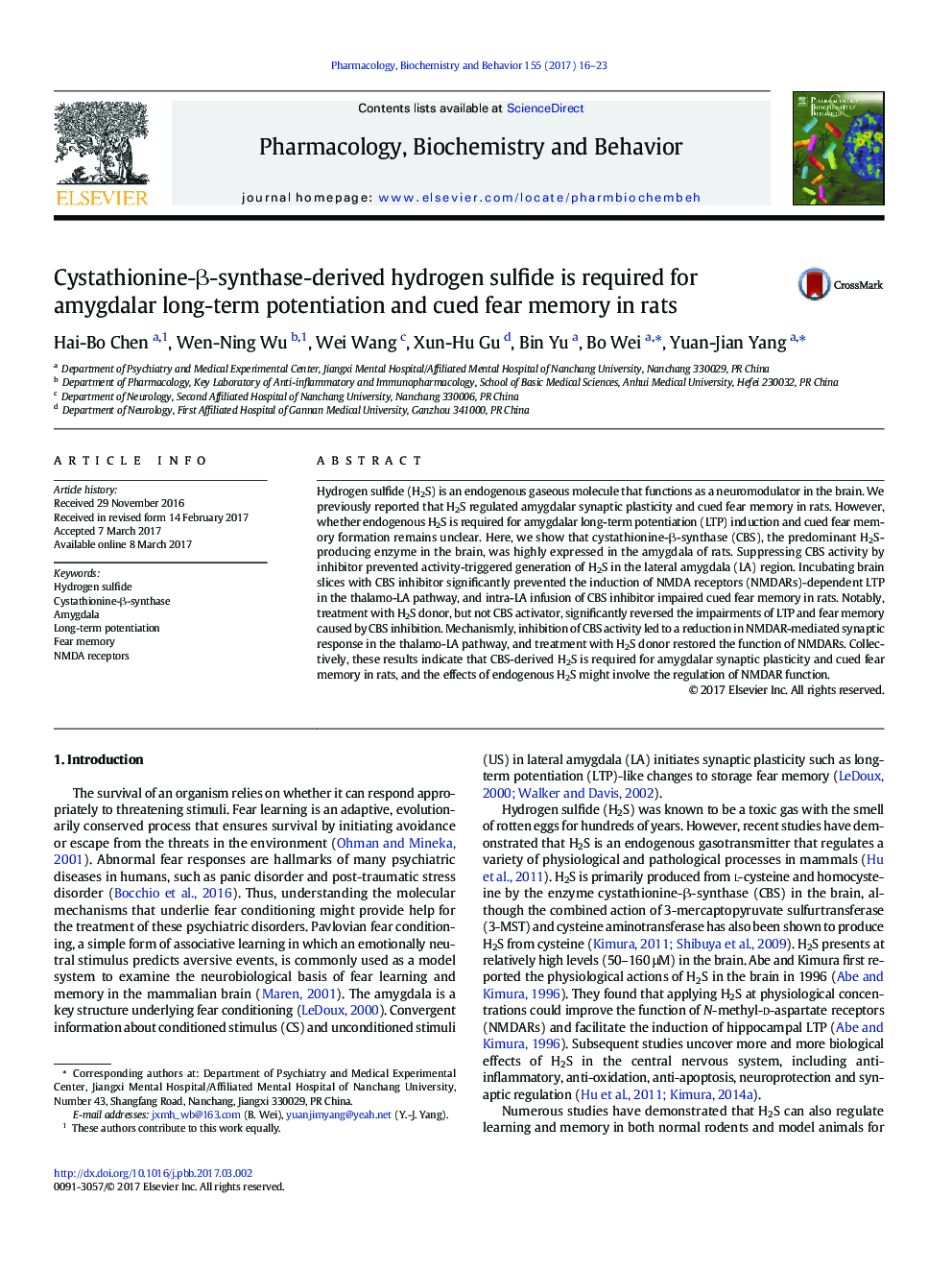| Article ID | Journal | Published Year | Pages | File Type |
|---|---|---|---|---|
| 5515185 | Pharmacology Biochemistry and Behavior | 2017 | 8 Pages |
â¢Inhibition of CBS prevents activity-triggered H2S generation in the amygdala.â¢Inhibition of CBS blocks amygdalar LTP induction and impairs fear memory in rats.â¢H2S donor reverses the impairments of LTP and fear memory caused by CBS inhibition.â¢H2S donor reverses the impairment of NMDAR function caused by CBS inhibition.
Hydrogen sulfide (H2S) is an endogenous gaseous molecule that functions as a neuromodulator in the brain. We previously reported that H2S regulated amygdalar synaptic plasticity and cued fear memory in rats. However, whether endogenous H2S is required for amygdalar long-term potentiation (LTP) induction and cued fear memory formation remains unclear. Here, we show that cystathionine-β-synthase (CBS), the predominant H2S-producing enzyme in the brain, was highly expressed in the amygdala of rats. Suppressing CBS activity by inhibitor prevented activity-triggered generation of H2S in the lateral amygdala (LA) region. Incubating brain slices with CBS inhibitor significantly prevented the induction of NMDA receptors (NMDARs)-dependent LTP in the thalamo-LA pathway, and intra-LA infusion of CBS inhibitor impaired cued fear memory in rats. Notably, treatment with H2S donor, but not CBS activator, significantly reversed the impairments of LTP and fear memory caused by CBS inhibition. Mechanismly, inhibition of CBS activity led to a reduction in NMDAR-mediated synaptic response in the thalamo-LA pathway, and treatment with H2S donor restored the function of NMDARs. Collectively, these results indicate that CBS-derived H2S is required for amygdalar synaptic plasticity and cued fear memory in rats, and the effects of endogenous H2S might involve the regulation of NMDAR function.
